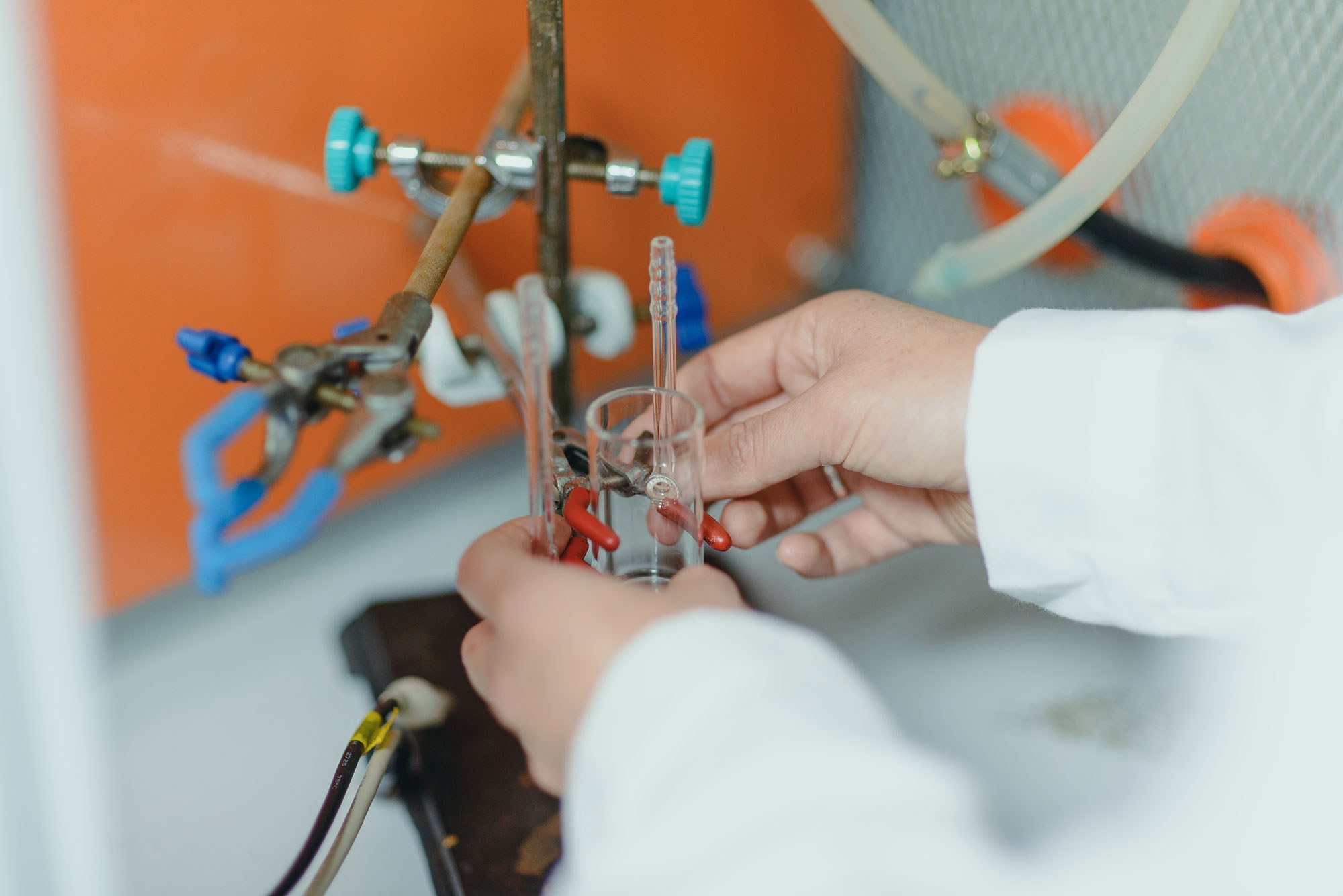Vergara-Pacheco, A., Adell, J. F., Preuss, P., Stephant, N., Cattin, L., Louarn, G., Bernede, J. -C., Fischer, A., Camarada, M. B. & Ramírez, A. M. R. (2025). In situ electrochemical synthesis of rhenium oxide-reduced graphene oxide hybrid electrodes for enhanced water splitting. International Journal of Hydrogen Energy, 172, 151374. https://doi.org/10.1016/j.ijhydene.2025.151374
Abstract: This study reports the in situ electrochemical synthesis of rhenium oxide nanoparticles on a glassy carbon (GC) electrode pre-modified with graphene oxide (GO), which is simultaneously reduced to reduced graphene oxide (rGO) during deposition. The resulting GC|rGO|ReOxNP electrodes were characterized by XPS, SEM, TEM, and EDS. Optimal HER performance was obtained with a 60 s deposition, achieving an overpotential of −0.160 V at 10 mA cm−2 and a Tafel slope of 52 mV·dec−1. The post-HER analysis showed that the optimum electrocatalytic properties were associated with the predominant rhenium oxidation states ReVI and ReVII. A key strength of this approach lies in its simplicity and sustainability: the electrochemical method provides a direct, single-step route for simultaneously depositing rhenium oxide nanoparticles and reducing GO to rGO under mild conditions. This eliminates the need for high-temperature treatments or multistep chemical procedures commonly reported in similar studies. These results highlight the potential of ReOxNP|rGO hybrid electrodes as efficient and scalable HER catalysts for green hydrogen production.


